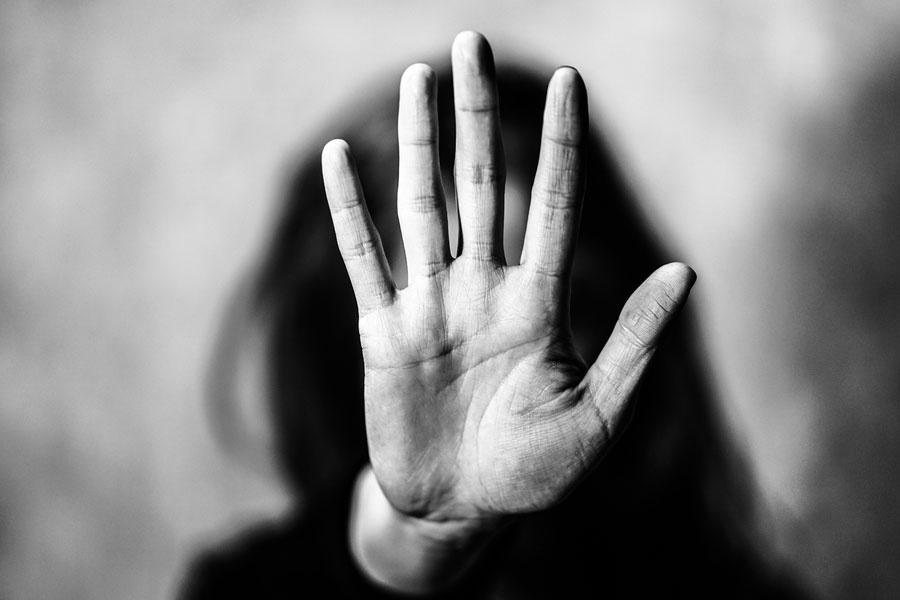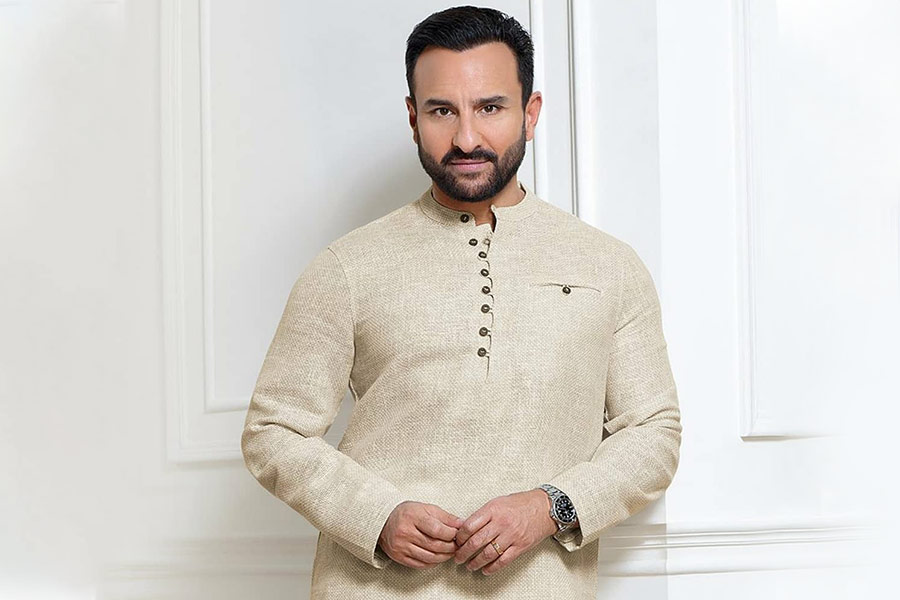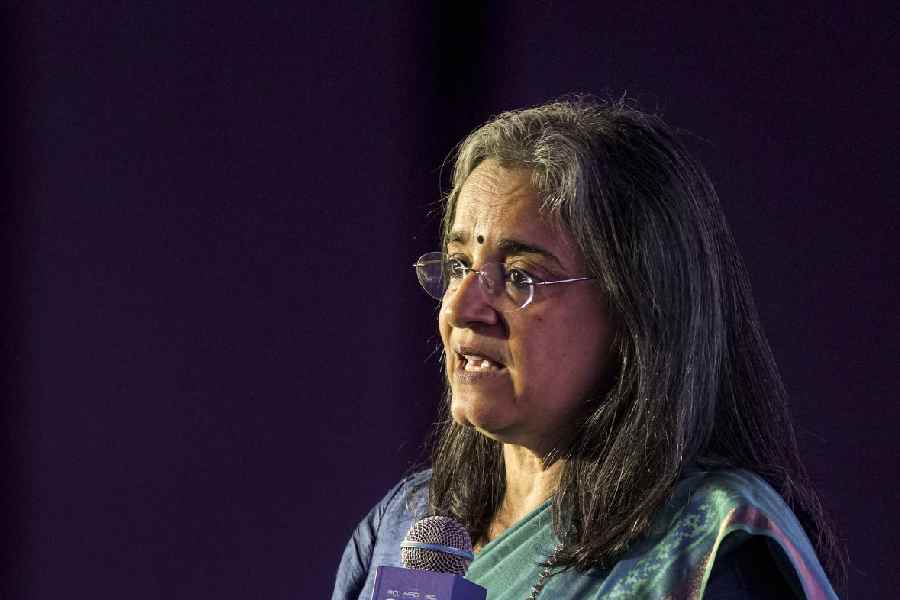• If you see or sense a victim of domestic violence, don’t rush into intervening in an over-aggressive manner. A better option is to try and give the victim an agency to seek justice and report the crime.
• Gender-based violence is not only physical violence. It can come in the form of psychological manipulation and economic oppression.
• A woman in a seemingly perfect relationship, whose social media account is replete with “couple goals” pictures, might well be a victim of abuse.
On Tuesday, a series of sessions at the American Center examined gender-based violence through multiple lenses in an interactive way.
December 10 marks the International Human Rights Day. All the sessions on Tuesday were bound by a core message. That gender equity is not a women’s issue but a human issue.
One of the sessions focused on the compliance with the Sexual Harassment of Women at Workplace (Prevention, Prohibition and Redressal) Act or PoSH Act, 2013. Ishani Roy, founder of Serein Inc, a DEI (diversity and inclusion) and workplace safety consulting company, joined the session virtually.
Taking questions from the audience, which comprised mainly students, Roy brought up bystander intervention as a tool to combat gender-based violence.
“You may see a person suffering from domestic violence, or see telltale signs. You may want to rush to help her. But you should not be over-aggressive. It might be counter-productive. Your aim should be to provide an agency to the person, to empower her to seek justice and report the violation,” said Roy.
In another session, Mrinalini Majumdar, lawyer and rights activist, said gender-based violence need not be confined to physical violence.
“Any kind of violation of the rights based on gender is gender-based violence. It can entail emotional violence, psychological extortion, manipulation and economic abuse,” she said.
Awareness and sensitisation can begin from breakfast or dinner-table conversations, often with parents, she said.
The programme was organised by the Buddhadeb Dasgupta Memorial Trust and the US consulate general in Calcutta. The charitable trust, set up in the memory of the auteur-director, engages in issue-based programmes, workshops and seminars through art and culture.
“Today’s programme is part of the UN-promoted ‘16 Days of Activism against Gender-Based Violence’ that culminates on the Human Rights Day,” said Sohini Dasgupta, founder-trustee of the trust.
US consul general Kathy Giles-Diaz put things in perspective in her opening address. She called gender-based violence “a major public health concern” and likened it to a pandemic.
“In a way, it is a pandemic. Worldwide, one in three women experience some form of gender-based violence in their lifetime.... In Calcutta, the reality of gender-based violence hit home for many of us with the rape and murder of the trainee doctor in August. That incident shocked the people of this city and rightly so. Each and every time a woman is beaten, raped and murdered should be a shock. But unfortunately we have become too used to it. We are used to puns against women,” she said.
“As we seek to address gender-based violence, our approach cannot be piecemeal. If it is going to be effective, it must be comprehensive and survivor-centric. Prevention and education must engage men and boys.”
Another session had Satabhisha Chatterjee, a clinical psychologist, helping the audience understand abuse.
She threw a flurry of questions at the audience. “Have you heard of domestic abuse? Have you seen it in films, read about it in books? Have you seen it in close quarters? Have you had to stand there and witness someone else go through it? Have you felt powerless,” she went on asking.
She mentioned some red flags. “People who say yes to everything, who try too hard to project a perfect family life may well be suffering from abuse,” she said.
The survivors often have a tendency to “over-apologise, blame herself or believe they deserve the abuse,” she said.











